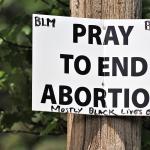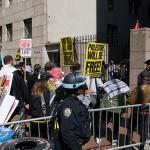He asked whether George W. Bush could be prosecuted for obstructing an official proceeding for allegedly lying to Congress to justify the Iraq war, or Barack Obama charged with murder for killing U.S. citizens abroad with drone strikes, or Biden charged with unlawfully inducing immigrants to enter the country illegally, based on his border policies.
“The answer to all these questions is no,” Sauer said.
“If a president can be charged, put on trial and imprisoned for his most controversial decisions as soon as he leaves office, that looming threat will distort the president’s decision making precisely when bold and fearless action is most needed,” Sauer added.
That makes sense. Then again, Sauer pushed the point to an extreme when he was asked at an earlier Appeals Court hearing whether or not a president should be prosecuted if he orders the assassination of a political rival:
D. John Sauer replied that such a prosecution could possibly take place — but only if the president is impeached and convicted by the Senate first. Or put another way, as far as Team Trump was concerned, a sitting president could order SEAL Team Six to literally murder his or her political rivals, and that president shouldn’t face criminal prosecution unless a majority of the U.S. House and two-thirds of the U.S. Senate act first.
That seems less sensible.
How do you think the Supreme Court should rule on this?
Could they craft a type of immunity short of “absolute” immunity? Some of the justices’ questioning suggested they were thinking of making a distinction between “official acts” that would have immunity and “private acts” that would not. But how could those be distinguished in practice? Which would assassinating a rival fall under?
Presidents are already subject to court rulings, so they are “under the law.” But what if they refuse to follow what the court rules?
I know that the political climate affects people’s opinions on this. Trump supporters will want to back his position and Biden supporters will want to prosecute Trump at any cost. But the issue seems to be deeper than the partisan politics of the moment. Conservatives, for example, are supposed to want small government and thus want checks and balances on a chief executive who might be tempted to seize tyrannical power. While liberals, who tend to want a more activist government, would not want their presidents dogged by constant legal threats.
So what are your thoughts on this issue?












